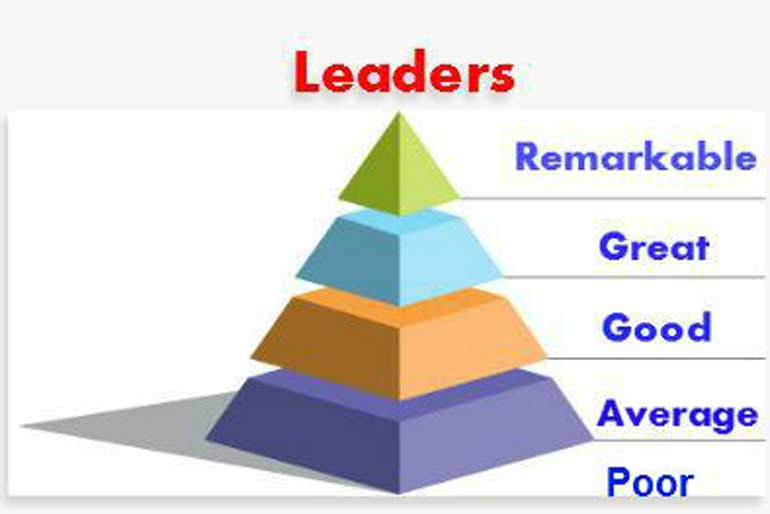Monday Feb 16, 2026
Monday Feb 16, 2026
Monday, 19 October 2015 00:00 - - {{hitsCtrl.values.hits}}

Which came first the chicken or the egg? To be or not to be? Nature versus Nurture?
Can we finally put this age old argument to rest and come to a conclusion?
Leadership: ‘Exercising of influence over others on behalf of the leader’s purposes, aims or goals’. Leaders are born not made: Great man theory and trait theories believe that people inherit certain qualities and traits that make them better suited to leadership.
“To suggest that leaders do not enter the world with extraordinary endowment is to imply that people enter the world with equal abilities, with equal talents.” (Thomas Carlyle 1840) There are certain inborn characteristics that predispose people to be and become leaders. There is a significant difference between ‘learning a skill’ and mastering one, in the same way that others are born with amazing musical gifts or athletic talents. They will excel naturally in these areas but others would be like a fish out of water and may struggle to get to the same point.
Born (natural) leaders are different to made (artificial leaders). All remarkable leaders have great history behind them. They were leaders from the onset of their journey.
If leaders were solely born what is the point of the rest of us studying leadership or management?
Birth is a natural process and the notion to associate leadership with it is arguable. Leaders are made not born: Behavioural theories believe that people can become leaders through the process of teaching, learning and observation. Leadership is a set of skills that can be learned by training, perception, practice and experience over time. Leadership learning is lifetime activity. Good leaders seek out development opportunities that will help them learn new skills.
The military embraces this doctrine which is evident through its leadership training program.
Can enrolling for a program on management and leadership makes someone a leader upon completion? Can charisma, influence, integrity and the ability to inspire be taught? Will the granting of a certificate and a few letters after one’s name make them a leader?
Soft skills can be explained, but not implanted. The ability to share your vision takes more than a sophisticated PowerPoint presentation and some crisp words on a bunch of 4x6 cards.
Leadership can be learned by anyone with the basics. But an awful lot of leadership cannot be taught. Some do well but others find themselves poorly equipped rendering mediocre results.
The verdict:
Leadership is an art rather than a science. It is a set of innate traits, refined and perfected over time with education, training and experience. There is also an aspect of being in the right place in the right time. You may be a leader but also a matter of whether or not you are in the position within which your talents can shine forth.
The discussion about leadership also needs to identify the location as well as the environment. Are we speaking about these major performers (born or made) in a small organisation, in an industry, in a society, in a country or in the world?
If the fear of leading overrides the willingness to take on the responsibilities then one is a follower. Not everyone can be a leader just like not everyone can become a good actor. Some people will never have that aspect in them while others have the latent ability and thus can be taught how to lead. All the books, classes, education and training cannot turn a follower into a leader.
To be a leader in a structured environment, one needs some formal training. Most people can learn to manage well, start a business, lead a project team since good management is based on rules – rules that can be learned and mastered.
Leadership is often a choice. A leader is a person who comes forward to take the challenge. If a leader rises up from the multitude, then that person was already a leader to begin with. Should someone have all the best training, nurturing and opportunities, but would rather be hidden in the crowd, an unwilling participant...not a leader.
Leadership styles vary with maturity, followers and situations
In the GLOBE research across 60 countries leader attributes conclusions were thus: “Integrity; charisma, inspirational, visionary, encouraging, positive, confidence builder, dynamic, foresight, effective team building, communicating, coordinating, decisive, intelligent, and win-win problem solver.” These attributes are a combination of personality, character, skill, communicative ability, and emotional intelligence. Therefore a leader is born, developed, skilled in communications, and cultivated through life experiences.
The best estimates offered by research is that leadership is about one-third born and two-thirds made.
It all depends on how one defines leadership. It is possible for either. Depending on how you define leadership everyone can lead and be a leader.
Perhaps we should seek to quantify leaders rather than qualify.

Remarkable leaders
Remarkable leaders would include the likes of Nelson Mandela, Mahatma Ghandi, Martin Luther King Jr., Aung San Suu Kyi…etc. Individuals that seek neither wealth nor fame, selfless, loved justice, passionate about people and worked for the greater good of others.
In studying leadership, the theories can be overwhelming. It is evident you cannot really support a side and negate the other. Although there are thousands of books, decade’s worth of well documented studies, the debate can go on forever without converging to a logical conclusion.